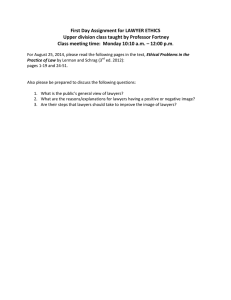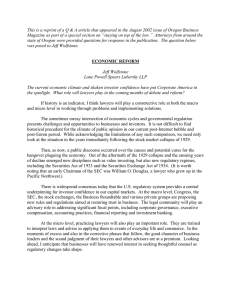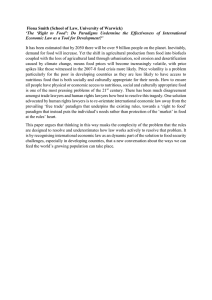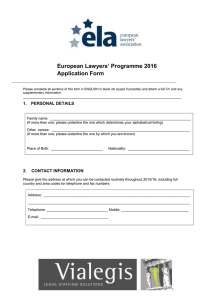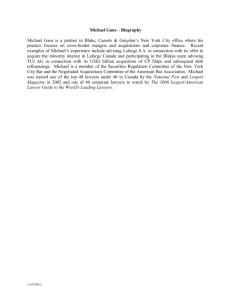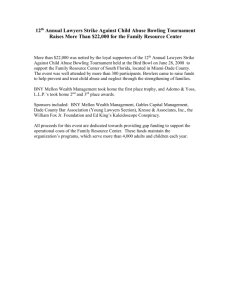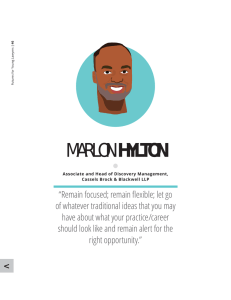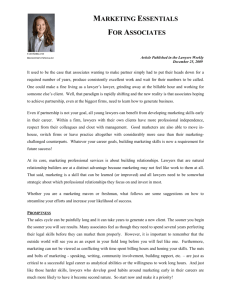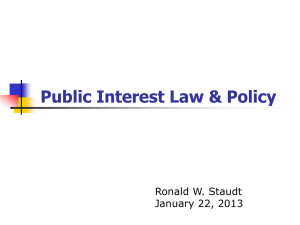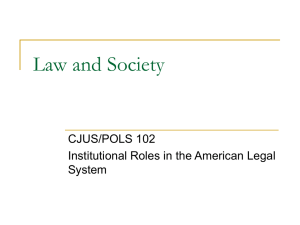ETHICS, HONESTY, AND TRUTH
advertisement
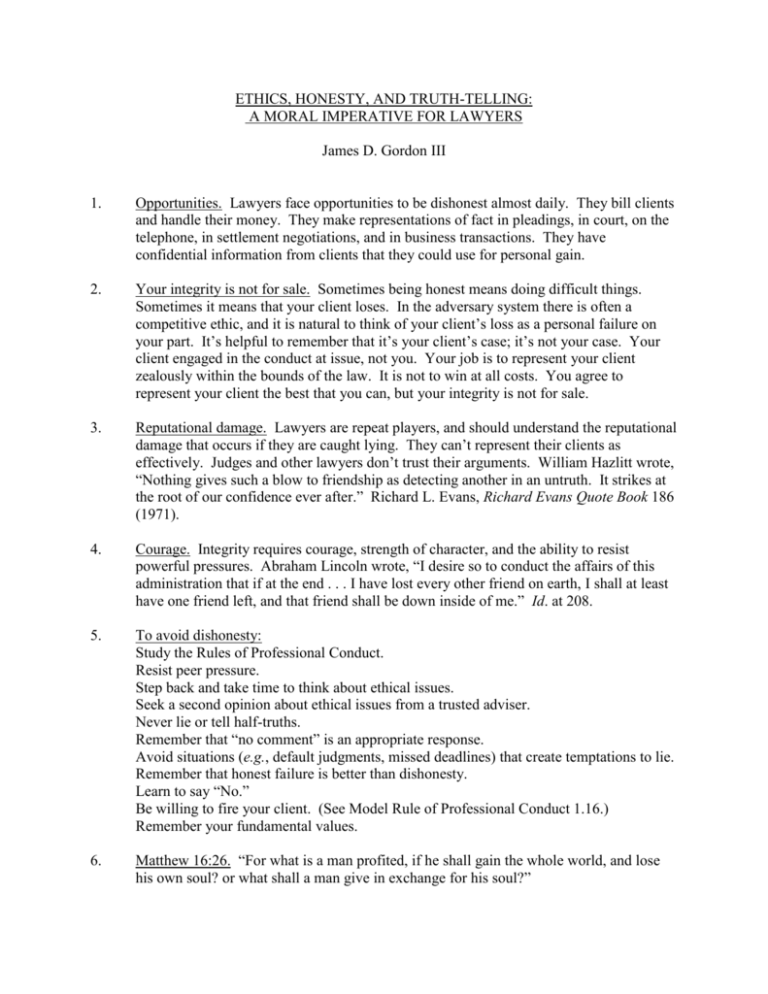
ETHICS, HONESTY, AND TRUTH-TELLING: A MORAL IMPERATIVE FOR LAWYERS James D. Gordon III 1. Opportunities. Lawyers face opportunities to be dishonest almost daily. They bill clients and handle their money. They make representations of fact in pleadings, in court, on the telephone, in settlement negotiations, and in business transactions. They have confidential information from clients that they could use for personal gain. 2. Your integrity is not for sale. Sometimes being honest means doing difficult things. Sometimes it means that your client loses. In the adversary system there is often a competitive ethic, and it is natural to think of your client’s loss as a personal failure on your part. It’s helpful to remember that it’s your client’s case; it’s not your case. Your client engaged in the conduct at issue, not you. Your job is to represent your client zealously within the bounds of the law. It is not to win at all costs. You agree to represent your client the best that you can, but your integrity is not for sale. 3. Reputational damage. Lawyers are repeat players, and should understand the reputational damage that occurs if they are caught lying. They can’t represent their clients as effectively. Judges and other lawyers don’t trust their arguments. William Hazlitt wrote, “Nothing gives such a blow to friendship as detecting another in an untruth. It strikes at the root of our confidence ever after.” Richard L. Evans, Richard Evans Quote Book 186 (1971). 4. Courage. Integrity requires courage, strength of character, and the ability to resist powerful pressures. Abraham Lincoln wrote, “I desire so to conduct the affairs of this administration that if at the end . . . I have lost every other friend on earth, I shall at least have one friend left, and that friend shall be down inside of me.” Id. at 208. 5. To avoid dishonesty: Study the Rules of Professional Conduct. Resist peer pressure. Step back and take time to think about ethical issues. Seek a second opinion about ethical issues from a trusted adviser. Never lie or tell half-truths. Remember that “no comment” is an appropriate response. Avoid situations (e.g., default judgments, missed deadlines) that create temptations to lie. Remember that honest failure is better than dishonesty. Learn to say “No.” Be willing to fire your client. (See Model Rule of Professional Conduct 1.16.) Remember your fundamental values. 6. Matthew 16:26. “For what is a man profited, if he shall gain the whole world, and lose his own soul? or what shall a man give in exchange for his soul?”
